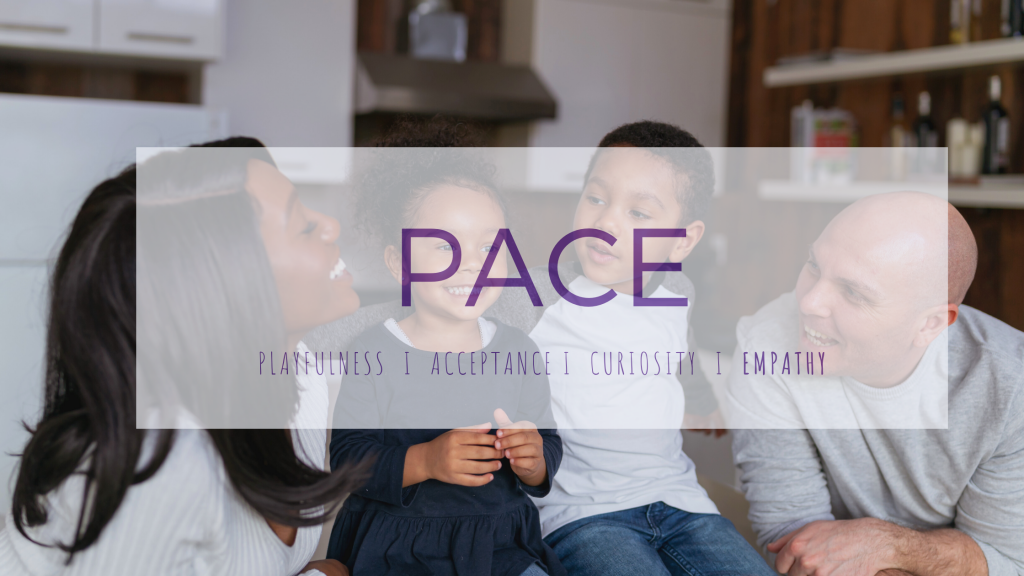
The last letter of PACE stands for empathy, or a parent’s ability to feel and engage within a child’s internal world. This means that a parent demonstrates that they understand the emotional experience of a child through their resonance and connection to their child’s experience. Empathy can only happen authentically – it can’t be faked. That means that if you can’t find empathy for your child’s experience, especially when they need it most to understand what happened for them, you need to find a way to calm down and be ready to talk about something difficult. Take your own time out and find a way to settle yourself. If you model this behavior instead of exploding, your child will start to learn that they can do that too. You can even tell them what’s happening and what you’re doing while you do it. “My body is freaking out right now and I need to find a way to calm it down before I can talk about this. It’s important that we talk about it so I’ll do what works best for me – going for a walk or a drive. What do you do when you feel like I’m feeling?” Then, do what you need to do to prevent your nervous system from engaging in a fight with your child and seeing them as a threat. Talk about this process as important because our bodies do not have to be in charge of what happens next, and we can choose to do something else by using our mind, this superpower that kids are learning how to use. Bluntly, if you can’t control your nervous system with your child, you know exactly what to expect from your child – the same. Because that’s how they learn. The book, Parenting from the Inside Out by Daniel Hughes, talks about this well. When we are empathic with our children, we are teaching them how to have empathy for themselves and others.
The opposite of empathy is judgement – refusing to believe that there could be emotional reasons that need acceptance and understanding, and focusing solely on the bad behavior. Only focusing on behavior and what was bad will teach your child to think about themselves and others like that. Show your child that you accept them even without accepting their behaviors, but give them the belief that there is hope for change, because they are not monsters, but humans who struggle to navigate their nervous systems and stress responses appropriately in society, just like everyone else, and we as parents are there to help our children navigate through that.
